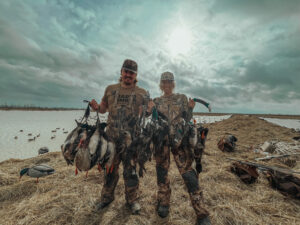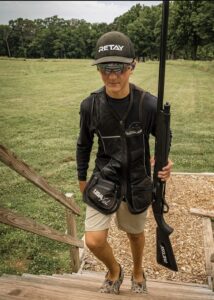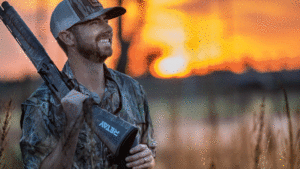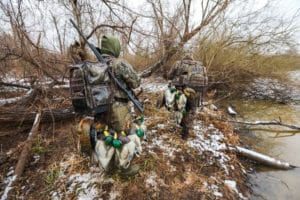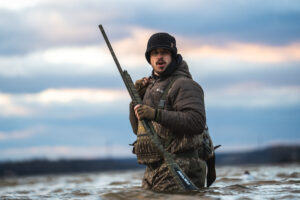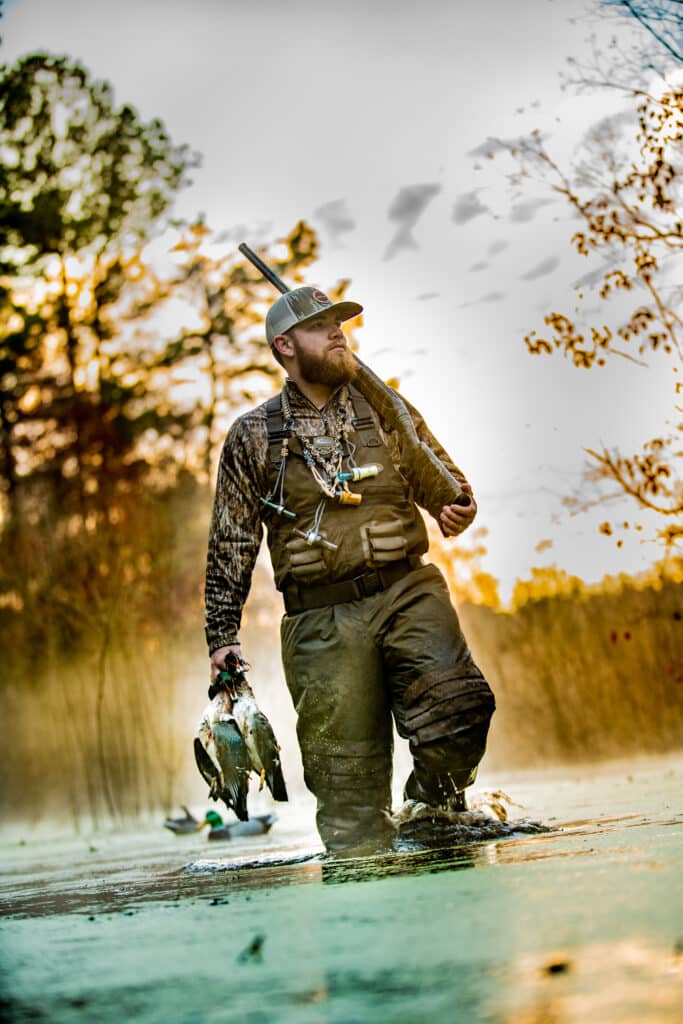
By: Justin Hunold

Every morning I wake up in the sunscape of some of the largest cities in the United States. I live about smack dab between New York City and Philadelphia. I have also lived in Charlotte, North Carolina. One thing that has always been a priority to me was figuring out the best way to get out in the field and hunt. Even in the largest urban scapes on the East Coast I find a way. Here is how to figure out hunting access in an urban center.
We hear about the three R’s in the hunting community a lot these days. Recruitment, Retention, and Reactivation. This is one place where a lot of Organizations, that may be totally in opposition in a lot of ways, crossover. Recruitment tends to be the easiest R. Retention and Reactivation on the other hand, those are the points of pain. Most folks, anecdotally, will point to access as the main reason they choose to stop hunting or just fade out. This has never been an option for me, hunting is burned deep in my soul and I will never be the person who can fade away.
So, how does an urbanite or suburbanite find access to hunt? I am not going to take into account things like very oppressive firearms laws, or limited travel options such as trains, buses and subways. These situations are too varied to try to even attempt. If I were in those situations I would be figuring them out first. But here is how I go about getting out to hunt when everything is pointing at turning in my camo for white sneakers and cargo shorts and mowing the lawn or watching sports and reality TV on fall weekends.
Mapping-Traditionally, when I have moved, I have immediately looked up all of the public hunting land near the area. This could be done old school with county plat maps, a state gazetteer or USGS scale maps. I would advise using a simple mapping app on your smartphone these days. There are multiples but I personally use Spartan Forge. The mapping is very accurate, has multiple layers and weather built into it. It’s the best I’ve used.
From the apps you can find the closest public land, launches, piers, water access and who owns what properties in the area. Now, match this up with your state’s outdoor regulation books, be them hunting, fishing or trapping. But don’t just look in your home state, look in the surrounding states if applicable. I for instance hunt New Jersey a lot more than Pennsylvania (where I live) because I can hunt Sundays in NJ, the license and tag situation is a lot more simple and the public land in NJ is much closer to me than the public land in PA. Think outside the boxes and borders.

Organizations– Remember those organizations I mentioned earlier? Find a few that align with your personal views and join them. I belong to Ducks Unlimited, Delta Waterfowl, The Teddy Roosevelt Conservation Project, Backcountry Hunters and Anglers and The National Rifle Association. The Rocky Mountain Elk Foundation, Whitetails Unlimited, Pheasants Forever, National Wild Turkey Federation and many more are all great. These are tax deductible, generally, and they will have events. The events matter.
From huge banquets to simple Pint Nights, or public land clean ups I have done them all. And with some networking at these events I have gained some good friends, and sometimes in a new area they’ll take you hunting. At the very least most times they’ll give you information that might be key to your hunting or give you a better understanding of the landscape and hunting culture in the area.
Local Agencies– We also mentioned the state agency regulation books. Often those same state agencies will hold events, great networking opportunities there. They will also show special hunt opportunities, and give you phone numbers to the local offices and biologists in the area. Use these numbers. I’ve never heard of a state agent that wouldn’t take time to help a person better understand the land, the game or the regulations to make sure that the individual has the best possible time outside.
Social Media– This last statement pains me in a way, find local groups on social media. Normally they will say something like “ Smithville Duck Stackers and Whackers”. As much as I don’t wanna be called a stacker or whacker I sign up. You can be an active participant or a lurker, but you will start to understand the local hunting scene from this group. You may even find hunting buddies in the group. Just a warning they will normally have Trolls, Know It All’s, and posts that are complete dumpster fires. These are the reasons I put this last on my list.

These tools are listed in the priority order for me. If I had to count on one it would be mapping and my own boot leather. What outdoors person doesn’t like spending time outside, in the off season, to figure out a new place or two to watch the sunrise and maybe a spot or two to watch it set too. I have had good luck setting up my own success through my own hard work.
The kindness of strangers is something that has helped out a lot too. And paying a bit of cash to these organizations make sure that outdoors folks have a seat at the table. Don’t forget to take note of whats happening around you in your own neighborhood too. At a barbeque, why not mention hunting to someone that might know someone? Wear some camo sometimes?
Do us a favor and put the food first in these conversations, this tends to be very widely accepted and brings people into the conversation. And if Barbeque Bob’s tip helps you harvest a few animals make sure you practice some game meat diplomacy and invite him to have a bite or two. Just because you might be looking at some new cargo shorts and matching holiday pajamas doesn’t mean you have to hang up hunting. Don’t Fade Away, you need hunting and it needs you.


